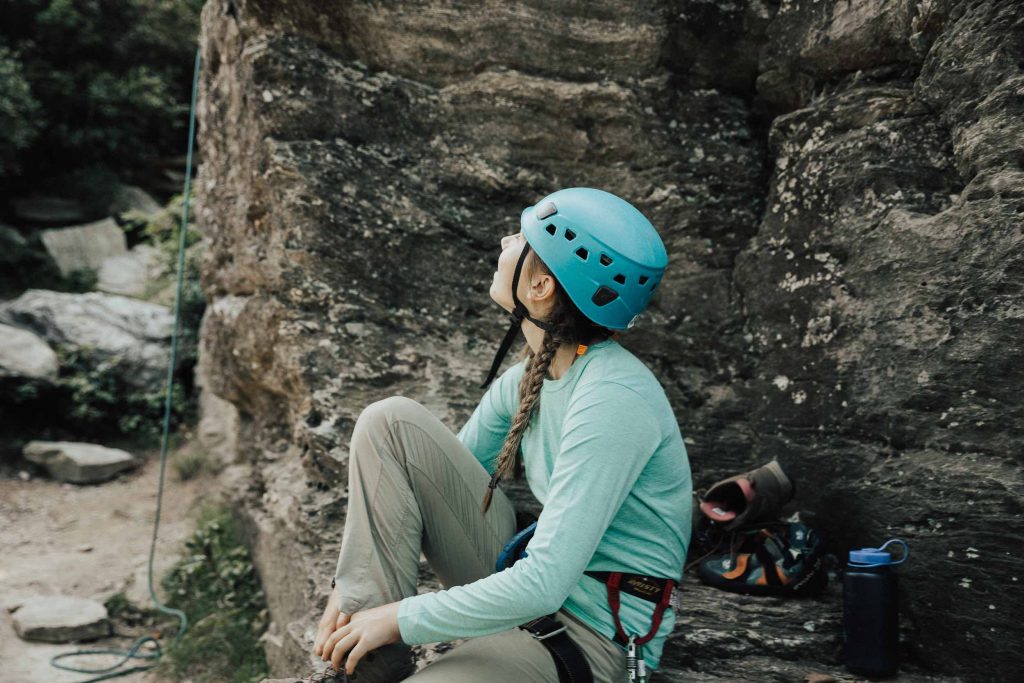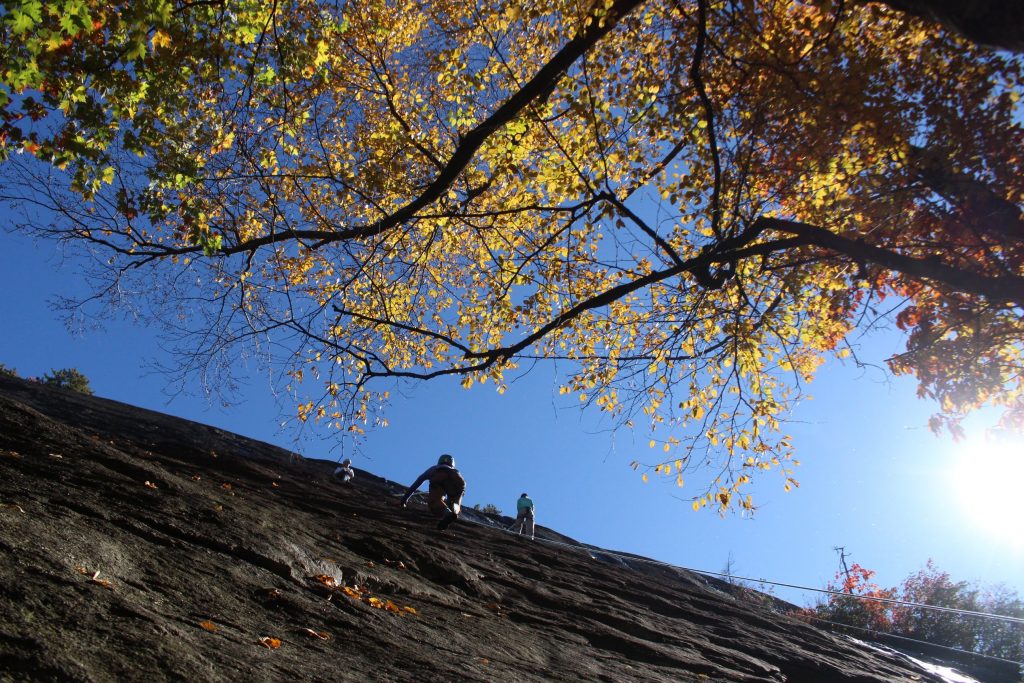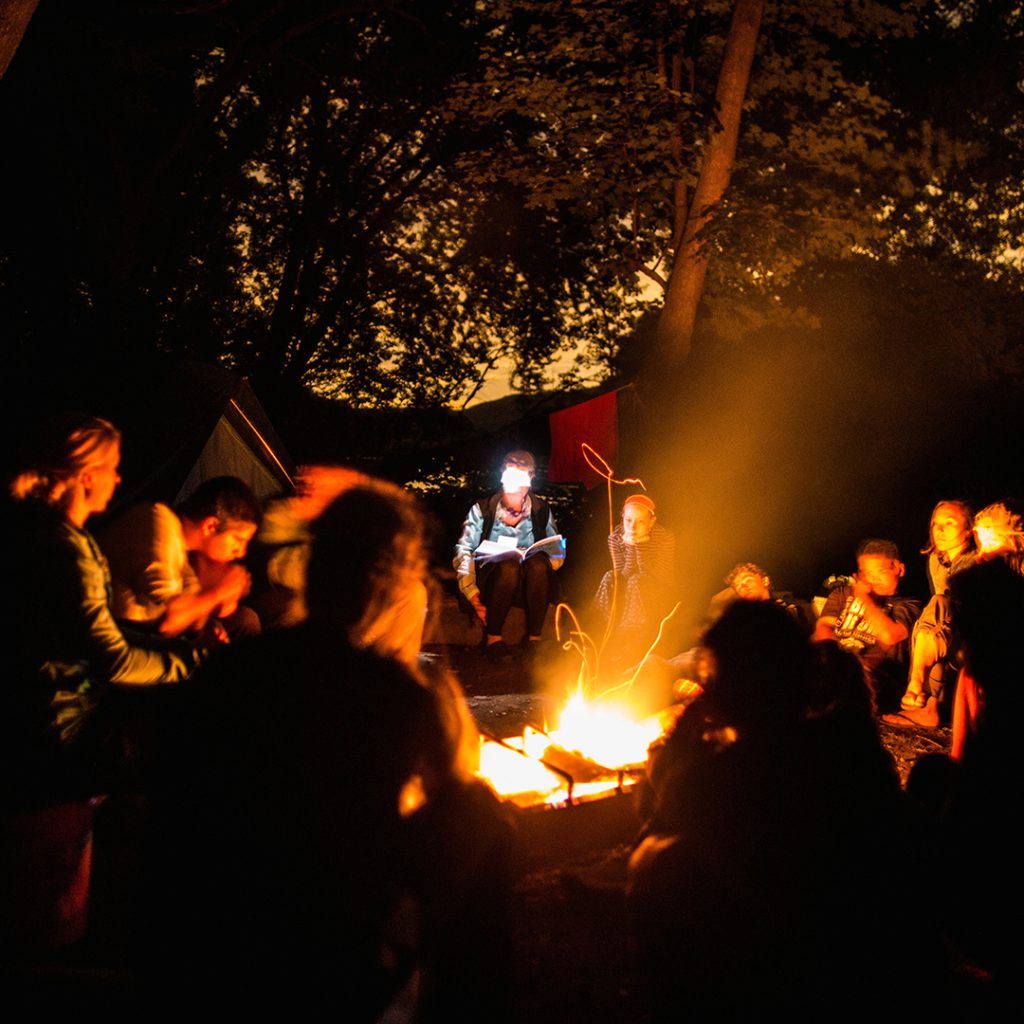The thing I remember best about successful people I’ve met all through the years is their obvious delight in what they’re doing, and it seems to have very little to do with worldly success. They just love what they’re doing, and they love it in front of others. –Mr. Rogers
The disillusioning looks that others give me when I tell them that I poop outside and sleep on the ground, and that I absolutely love it, are the moments I live for. It’s rewarding for me to know that my measurement of success is mine alone.
Mr. Rogers was right. I love being an outdoor educator and I love it in front of others, regardless of their understanding. My hope for my students is that through their course, they feel that too. I hope they walk away from their experience loving what they did and knowing what they hope to do. Finishing an expedition with a crew always reminds me that love is truly what makes the world go round. And to feel in love with yourself and the world—that is a success.
How Do We Define Success?
We all define success differently. The definition is not fixed, which makes the topic all the more interesting. Success is derivative of failure, relationships, putting yourself out there, laughter, adventure, and much more. It’s the sum of experiences and paths explored—some more fun than others.
I’m in awe and humbled by some of the paths of people I’ve read about or met, including my own students on a course, who I think are ‘successful.’ And I think about my own summers as a kid, how I’ve spent my summers since graduating college, and how proud I’m of myself, despite anyone else’s approval. I spend my summers outside, exploring.
This is a reminder to adventure, to spend time doing the things you love, and to invest in your community, wherever that is.

Photo by Rachel Veale.
A Camp Chef Turned Neurosurgeon
Paul Kalanithi, a neurosurgeon, writer and father, passed away at age 36 from what he describes ironically as a blessing by any person who chooses to study death/cancer. He wrote When Breath Becomes Air in the last months of his young life. He undoubtedly fits into our culture’s definition of what it means to be successful—career-driven, people-oriented, intellectual, empathetic.
As an outdoor educator who studied fine arts, I didn’t put much thought into how well I’d relate to his life. But I was surprisingly and humbly mistaken.

Photo by Blaine Weiss
During his college years, Dr. Kalanithi was offered two choices: work at a lab for the summer or as a summer camp counselor. He felt pressures from his family and his advisers at school on what the “right” choice would mean career wise. What he chose was what others thought wouldn’t propel him anywhere. He chose to work at a summer camp, and said he owed his freedom, creativity and desire to pursue medicine to that job. He knew he’d never have that experience again and it gave him the determination to care for people for the rest of his life. He questioned, “If the unexamined life was not worth living, was the unlived life worth examining?” Choosing to work at a summer camp after being offered a prestigious opportunity for his studies was the life he felt was worth living.
Throughout college, my monastic, scholarly study of human meaning would conflict with my urge to forge and strengthen the human relationships that formed that meaning. If the unexamined life was not worth living, was the unlived life worth examining? Heading into my sophomore summer, I applied for two jobs: as an intern at the highly scientific Yerkes Primate Research Center, in Atlanta, and as a prep chef at Sierra Camp, a family vacation spot for Stanford alumni on the pristine shores of Fallen Leaf Lake, abutting the stark beauty of Desolation Wilderness in Eldorado National Forest. The camp’s literature promised, simply, the best summer of your life. I was surprised and flattered to be accepted. Yet I had just learned that macaques had a rudimentary form of culture, and I was eager to go to Yerkes and see what could be the natural origin of meaning itself. In other words, I could either study meaning or I could experience it. After delaying as long as possible, I finally chose the camp.
Eventually the term ended and I was on the windy mountain road to the camp, still slightly worried that I’d made a wrong turn in life. My doubt, however, was short-lived. The camp delivered on its promise, concentrating all the idylls of youth: beauty manifested in lakes, mountains, people; richness in experience, conversation, friendships. This was summer at Sierra Camp, perhaps no different from any other camp, but every day felt full of life, and of the relationships that give life meaning. -Dr. Paul Kalanithi
Reading Dr. Kalanithi’s words is a nostalgic reminder of how we’re all connected. While we live different lives and do different things, at the basis of who we are is our relationships with each other. That’s what drove him and his success—measured by the impact he had on his family, friends, former patients and readers.
I’ve never met Paul. I never will, but I feel connected to him through his words and values. I’m thankful for that book and his leadership. I’m a big fan of his 20-year-old self, and looking back through time at what his camp experience taught him.
Leadership Skills Learned by the Campfire
After reminding myself about Dr. Kalanithi’s words, I was curious what my aunt may think about the question: how did successful people spend their summers as kids? She’s textbook successful—a CEO, a mother to a loving family and an active community member. Her life experience is different than Dr. Kalanithi, but something stood out when I asked for her thoughts.
The one memory that keeps coming back to me is camp. It also included an opportunity for me to improve my leadership skills. I had the blessing of a mother who was a musician, so we all had to learn how to play instruments. And I loved playing folk guitar, which meant I was often leading a sing along around the campfire. When I think about that skill of kicking off a song, making sure it’s in a pitch that everyone can sing easily, paying attention to where the voices were that were strongest, and helping to harmonize so that we felt unity around the circle, I realize that those are the skills and qualities of a leader. Today I’m the CEO of a large corporation, and I still have to pay attention to the voices in the room and find ways to harmonize with the group. I have to make sure that we’re working together at a pitch that makes sense for everyone. Leading people is a gift and a blessing. Identifying strengths and weaknesses and optimizing strengths while helping people mitigate their weaknesses is something I seek to do every day. And I now realize that it’s best to be who you are and to not shy away from the gifts that your parents gave you when you were growing up. I try to be an authentic leader every day and play to my strengths and encourage others around me to do the same.

Success Is Measured by Your Experiences
How successful people spent their summers as kids is a fun way to think about how you spent your summers, or how you want your kids to. It’s not just summers off from school, or sunny weather—it can be a generous time to explore yourself, passions, try new things, feel both freedom from responsibility while trying to gain more.
These are the stories of two people I admire, who have walked many paths and worn different hats, sharing how their summers spent as kids helped lead them to where they are today.
Take some time today to reflect on who you believe is successful. Ask yourself, why? Do you admire their integrity and ambition? Are they humble and loyal? Do they encourage you to try new things? And how did they spend their summers?
On an Outward Bound course, we’re all successful because we put our hearts into our work and our success, as we define it. We celebrate ourselves and each other. And even when it’s late at night and we’re cold and tired, we’re having fun.
No matter who you are, what you like, or where you’re going, your success is measured by your experiences.
So, experience, fully, whatever comes your way.
About the Author
Blaine Weiss is an outdoor Instructor who works primarily with the FINS and Intercept programs of the North Carolina Outward Bound School. With a background in film and writing, she seizes the opportunity to fuse her interests in the creative arts with her love of the outdoors.
OTHER POSTS YOU MAY LIKE
Read More
Read More
Read More




